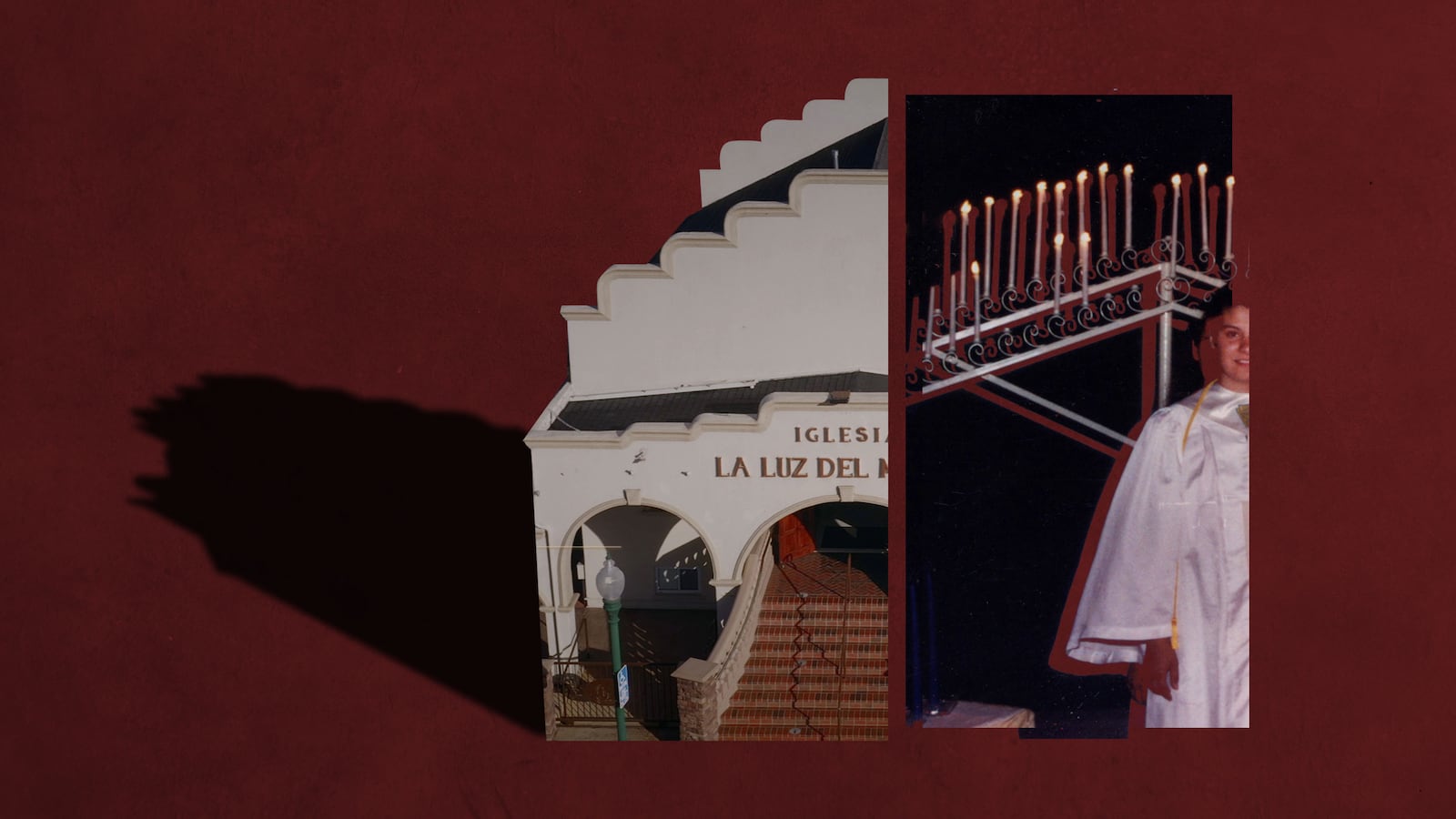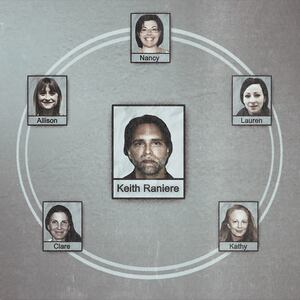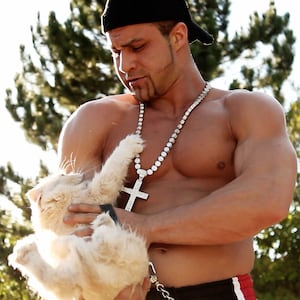Religion, self-help, and horrific sexual abuse frequently go together, as detailed by Spotlight (about the Catholic Church), The Vow (about NXIVM), Keep Sweet: Pray and Obey (about the FLDS), Wild Wild Country (about guru Bhagwan Shree Rajneesh’s New Age movement), and numerous other modern exposés. In terms of sheer despicableness, however, few nonfiction affairs can match Unveiled: Surviving La Luz del Mundo, a three-part HBO offering (Dec. 6) about La Luz del Mundo (“The Light of the World”). A Christian church-cum-cult that now spans the globe with a reported 5 million members, its doctrine revolves around strict loyalty and obedience to its “apostles,” who claim to be the chosen messengers of God—and who, according to those featured in director Jennifer Tiexiera’s docuseries, are pedophiles who prey upon their adherents.
La Luz del Mundo was founded in 1926 by Eusebio (Aarón) Joaquin, the first “Servant of God,” and he was succeeded by his son Samuel Joaquín Flores and then, in 2014, by his grandson Naasón Joaquín Garcia. Built around the notion of these men’s divinity, the church recruits Mexico’s poorest and most in-need citizens, and under Samuel, it grew into an international powerhouse, replete with a Guadalajara headquarters that looks like something out of a science-fiction novel. It preaches heavenly prosperity to those who dedicate their lives to its teachings, and who pay tithes whenever requested—all of which go directly to the apostles, allowing them both to expand the church’s reach around the world, and to live like veritable kings, with cars, homes, and real estate holdings on multiple continents.
That La Luz del Mundo exploits its flock economically is no shock, since that’s how virtually all cults work. Equally unsurprising is the fact that followers who choose to question the apostles’ divinity—or the means by which they’re selected in a “Divine Election”—are denounced and excommunicated, instantly cut off from family and friends. Still, there are plenty of jaw-dropping revelations in the archival material-rich Unveiled: Surviving La Luz del Mundo, most of them having to do with the depravity perpetrated by Samuel and his successor Naasón. Even by the low standards of megalomaniacal monsters, the two come across as the vilest of the vile, erecting and maintaining a system of control and assault that transformed victims into victimizers and, in the process, ruined countless lives.

One of La Luz del Mundo's many churches.
HBOCiting biblical predecessors such as David and Solomon, Samuel and Naasón spread a gospel in which they are Jesus’ emissaries on Earth, and thus above mortal men and to be obeyed in every respect. That includes in the bedroom, where young girls were brought by the apostles’ secretaries—who were little more than abused women-turned-groomers—to satisfy the leaders’ every whim. Some of those children were as young as 8 years old, and not only were they violated and humiliated in private by the apostles, but they were compelled to engage in threesomes, visit (and participate in activities at) S&M clubs, and coax their younger siblings into these heinous spaces so they too could be molested. Refusing such requests was sacrilege, given that being with the apostle was a “blessing.” As a result, young women went along with them, fearful of getting on the wrong side of the Lord.
Naturally, Samuel and Naasón also demanded that their victims—many of whom were labeled “unconditionals,” a designation for truly compliant devotees—keep these dalliances secret from their loved ones. As far as insular and cruel operations go, it was an effective one, and the more La Luz del Mundo grew in size and power, extending its influence into corporate and political areas, the less anyone dared challenge it. Except, that is, for Sochil Martin, one of Naasón’s favorite targets, whom he abused even after she wed Sharim Guzman. Following years of horrific treatment, Martin snapped when Naasón asked her to make out with a 14-year-old boy in front of him and the kid’s mother, and with the aid of her spouse—who was stunned to learn about what had been happening to his wife—she turned to Reddit. There, a small community of whistleblowers soon caught the attention of outsiders, including Kate, a resident of the Flowery Branch, Georgia, town that Naasón planned to convert (on 270 acres of purchased land, Wild Wild Country-style) into a veritable La Luz del Mundo metropolis.

Sochil Martin.
HBOSpeaking forcefully and comprehensively about her personal experiences as well as La Luz del Mundo’s inner workings, Martin comes across as an amazingly brave and determined survivor. She’s joined in Unveiled: Surviving La Luz del Mundo by a collection of interview subjects—including ex-members Joel Silva Orozco, Althea, Leticia Silva, and Keila Topete—whose testimonials are filled with sorrow, shame, and unbearable anger at the offenses committed against them. Ravaged by old men and then convinced to lure other girls into identical fates, they’re battered individuals bonded by their shared experiences and by their common cause to bring down the church, which gained traction in 2019 when Naasón and three of his female groomers were arrested in Los Angeles and charged with a litany of crimes.
The effort to prosecute Naasón in the United States forms the majority of Unveiled: Surviving La Luz del Mundo’s final chapter, and it provides even more developments over which to feel righteous outrage. After two years of delays orchestrated by the apostle’s lawyers, and driven by prosecutorial mistakes that jeopardized any possible conviction, Naasón struck a deal and pleaded guilty to only three of the 19 charges he faced—an outcome that earned him 16 years and eight months behind bars, and enraged the five anonymous Jane Does who risked their lives to testify. To hear their courtroom remarks directed at Naasón is to be appalled at a legal system that can’t get things right even when the truth appears incontrovertible.
Unveiled: Surviving La Luz del Mundo reveals that, for Martin and others, the fight to lock Naasón away for good, and to dismantle the church once and for all, remains ongoing. Yet, as with so many true-crime docuseries, genuine justice—and the measure of peace it affords—continues to be in depressingly short supply.







